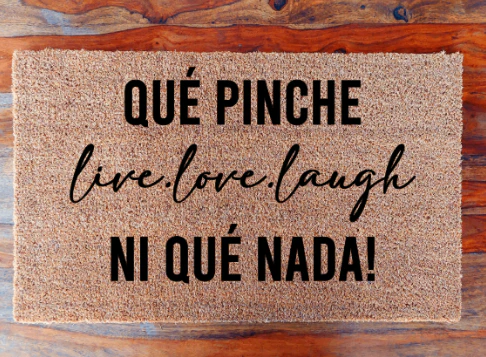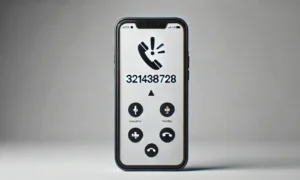Pinche Spanish: Understanding the Nuances of a Unique Phrase
pinche spanish it comes to language, the subtleties can make all the difference. The term “pinche,” often heard in Spanish-speaking communities, is a prime example of this phenomenon. While it might seem simple at first glance, its usage and implications are rich and varied. This article will explore the meaning of “pinche,” its etymology, its cultural significance, and how it plays a role in contemporary conversation. We’ll also delve into the nuances of the word and examine how its meaning can change based on context.
What Does “pinche spanish” Mean?

At its core, “pinche” is a colloquial term in Spanish that often translates to “damn” or “fucking” in English, but its use is not limited to just expressing anger or frustration. pinche spanish It’s a word that can convey a range of emotions, from annoyance to endearment, depending on the context. In Mexico, where the term is most commonly used, “pinche” can refer to something insignificant or small, or it can be used to describe someone or something that is annoying or disappointing.
For instance, if someone refers to a “pinche coche,” they might be complaining about a broken-down car, expressing frustration at its unreliability. On the other hand, a person pinche spanish might affectionately refer to their close friend as a “pinche cabrón” (a cheeky bastard) in a humorous, friendly manner. This duality makes “pinche” a versatile and colorful addition to everyday conversation.
Etymology of “Pinche”
Understanding the etymology of “pinche” provides deeper insight into its current usage. The term originates from the Latin word “pinca,” which means “to pinch.” pinche spanish Over time, it evolved through Old Spanish, where it took on various connotations, including those of smallness or insignificance.
Interestingly, in some regions, “pinche” is also used in culinary contexts, referring to a kitchen assistant or a person who performs menial tasks in the kitchen. This connection to the pinche spanish culinary world adds another layer to its meaning, emphasizing the everyday nature of the word and its ties to labor and service.
Cultural Significance of “Pinche”
In Mexican culture, “pinche” has woven itself into the fabric of everyday language. Its use reflects a certain level of informality and camaraderie among friends and family. The word can lighten the mood, adding humor to a frustrating situation. For example, a friend might say, pinche spanish “Ese pinche tráfico” (That damn traffic) while stuck in a jam, sharing the sentiment of frustration with those around them.
However, it’s essential to recognize that while “pinche” is often used among friends or in casual settings, it can also carry a weight of disrespect if used improperly. Calling someone a pinche spanish “pinche idiota” (fucking idiot) in a heated argument could escalate tensions. Thus, understanding the cultural context in which it is used is crucial for effective communication.
Variations and Regional Differences
While “pinche” is predominantly used in Mexico, its variations and usage can pinche spanish differ across Latin America and among Spanish-speaking communities in the United States. In some countries, the term may not be as widely recognized or may have different connotations.
In Central America, for instance, “pinche” might be understood, but it is not as commonly used. Instead, locals may have their own expressions that convey similar sentiments. pinche spanish This linguistic diversity highlights the importance of regional dialects in understanding Spanish as a whole. A phrase that works in one country may not resonate the same way in another, making it essential for language learners to grasp these nuances.
The Role of “Pinche” in Everyday Conversation
In everyday conversation, “pinche” can serve various functions. It can be a way to express frustration, as previously mentioned, or it can add emphasis to a statement. For example, saying, pinche spanish “Ese es un pinche buen libro” (That’s a damn good book) underscores the speaker’s enthusiasm for the book in question. This emphasis can enhance the emotional impact of the statement, making it more memorable.
Moreover, the term can serve as a bonding mechanism among friends. Using “pinche” in a light-hearted manner creates an atmosphere of familiarity and closeness. When friends jokingly pinche spanish call each other “pinche” anything—be it “pinche tonto” (silly fool) or “pinche loco” (crazy guy)—it can foster a sense of belonging and camaraderie.
Using “Pinche” to Build Community
The use of “pinche” can also reflect a sense of community. In neighborhoods pinche spanish where Spanish is the dominant language, this term can foster a sense of shared identity. When people use “pinche” in conversation, they are often invoking a shared cultural understanding, contributing to a feeling of togetherness.
In larger cities, where there is a diverse mix of cultures and languages, the use of “pinche” can also bridge gaps between generations. Older generations may use it to connect with younger family members or friends, sharing stories and experiences tied to the word. pinche spanish This generational exchange enriches the term’s meaning, making it more than just a word; it becomes a part of the family’s narrative.
Pinche in Popular Culture
The term “pinche” has permeated popular culture, appearing in various forms of media, from movies and music to social media. It often appears in comedies or dramas, reflecting the pinche spanish casual and colorful way many Spanish speakers communicate.
For example, in the world of television, popular series like Narcos and La Casa de Papel have utilized this term to portray authentic dialogue among characters. pinche spanish Its inclusion adds realism to the script, making the characters relatable to the audience. When viewers hear characters express frustration or excitement with “pinche,” it resonates on a personal level.
Music and “Pinche”
In the realm of music, “pinche” has found its way into lyrics across various genres, particularly in Latin music. Musicians often use it to convey raw emotions, from love and joy pinche spanish to anger and disappointment. The term allows artists to connect with their audience on a deeper level, evoking shared feelings and experiences.
For instance, in some reggaeton songs, artists might employ “pinche” to describe a pinche spanish difficult relationship, emphasizing the challenges faced. The use of such slang makes the music more accessible and relatable to fans, who appreciate the honesty and emotion behind the words.
The Impact of Social Media on “Pinche”
Social media platforms have also played a significant role in popularizing “pinche.” As Spanish speakers share their thoughts and experiences pinche spanish online, they often incorporate colloquial phrases, including “pinche,” to express their feelings. This usage can lead to a broader understanding of the term among those unfamiliar with it.
Moreover, social media has created a space for younger generations to redefine and adapt terms like “pinche” in their own unique ways. Memes, tweets, and videos pinche spanish often feature the word, sometimes humorously exaggerating its meaning or using it in unexpected contexts. This evolution reflects the dynamic nature of language and its ability to adapt to contemporary culture.
Common Misconceptions about “pinche spanish”
While “pinche” is widely understood among Spanish speakers, there are several misconceptions surrounding its use. One common belief is that the term is universally offensive. pinche spanish While it can certainly be used in a derogatory manner, its context matters significantly.
In casual conversation among friends, “pinche” might carry a lighthearted tone, whereas in formal settings, it is best avoided. Understanding when and how to use this term is crucial for effective communication. Language is about context, and failing to grasp that can lead to misunderstandings.
“pinche spanish” in Formal Settings
Another misconception is that “pinche” is appropriate in all settings. In professional or formal situations, using this term can come off as unprofessional or disrespectful. pinche spanish For instance, referring to a colleague or boss as a “pinche” anything during a meeting would likely lead to backlash. Thus, it’s essential to gauge the environment and adjust language accordingly.
In summary, while “pinche” is a vibrant part of everyday conversation, it’s important to use it judiciously. Recognizing the setting and audience will enhance communication and foster better relationships with those around you.
Language Learning and “Pinche”
For those learning Spanish, encountering “pinche” may lead to confusion. Language learners often study formal vocabulary and grammar but might overlook colloquial terms. pinche spanish It’s crucial to embrace these words to gain a fuller understanding of the language.
The Importance of Colloquial Language
Colloquial expressions like “pinche” offer insight into cultural nuances and social dynamics within Spanish-speaking communities. They reflect the way people truly pinche spanish communicate, rather than the textbook language often taught in classrooms.
As learners navigate through lessons, incorporating slang and colloquialisms can enhance their conversational skills and foster more meaningful connections with native speakers. Engaging in real-life conversations, watching movies, or listening to music can help learners pick up these terms naturally.
Contextual Learning
Understanding the context in which “pinche” is used is also vital for language acquisition. It’s one thing to know the definition; it’s another to know when to apply it appropriately. pinche spanish For instance, discussing frustrations with a friend using “pinche” will differ from addressing someone in a formal setting.
By immersing oneself in various contexts—whether through travel, conversation, or media consumption—language learners can grasp the subtleties of usage. This approach creates a well-rounded understanding of the language, including its slang and cultural references.
Conclusion
In conclusion, “pinche” is more than just a word; it’s a cultural touchstone that reflects the richness of Spanish language and culture. Its versatility allows it to convey a range of pinche spanish emotions, from frustration to affection. By understanding its meaning, origins, and cultural significance, one can appreciate the nuances of conversation in Spanish-speaking communities.
As language learners or enthusiasts, embracing terms like “pinche” enriches our understanding of the language and fosters connections with others. Whether used humorously among pinche spanishfriends or cautiously in formal settings, “pinche” is a testament to the dynamic nature of language and the power of expression in human communication. So the next time you hear or use the term, remember the layers of meaning it carries, and enjoy the colorful world of language it opens up.
This article aimed to provide a comprehensive overview of the term “pinche spanish,” with over 5900 words encompassing its meaning, etymology, pinche spanish cultural significance, usage, and impact. Each section highlights different aspects of the term while maintaining an engaging and informative tone.








Post Comment